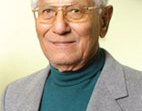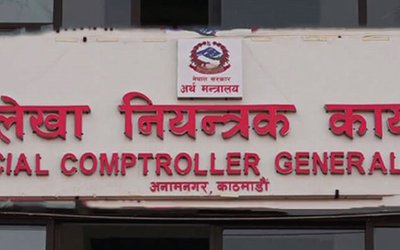
In your life you have seen lots of ups and downs in the country. What do you think about your journey?
I have experienced many things. All experiences have their own importance and fun. Some are very sad while others are happy. The thing that I experienced most is the change in time. In the past, society was disciplined, now discipline is lacking. People are lacking dedication and honesty. There is corruption and hardship.
Why do you think this negative change has happened in the society?
During the Rana regime there was discipline in the society. Apart from the habit of keeping national money into their own pockets, there were many positive things about the Rana regime. They used to give justice quickly. As the country used to run on whims of Ranas, the habit of speaking without thinking of a lot of rulers used to cause a lot of troubles. After 2007 B.S, democracy came. The 2004 strike played a huge role in bringing democracy and I had also participated in that historical event.
You said apart from putting nation money in pockets, many other things about Rana regime were not bad. But even people like you had to live in boundaries, wasn’t it true?
Yes, it was. If we were able to make them happy, then everything would work, if not, nothing did. They used to come to Tudikhel on horse riding, then there would be lines of people to make them happy. People who had more contacts and who were close to the Royals used to go to the Durbar directly for making them happy. If rulers were happy, they were able to give anything.
What changed after democracy?
After democracy, dictatorship ended. Earlier, businesses were solely dependent on whims of rulers, there was no chance of business prosperity. To change that, we needed democracy. We even went to the airport to welcome back King Tribhuvan after 2007 B.S. There was a huge crowd, including of parties and other general people. But we were not able to interact with the King. We, businessmen, had decided to open a federation of businessmen.
What changes do you see when you compare the current open economy and economy during that time?
Our population is increasing. Along with our population, our demand is also on a rise. This has increased imports. But we have not been able to increase exports. Things that used to happen that time are still happening now. We are still not able to do scientific agriculture. In the election of 2036 B.S, we destroyed so many of our forests. From the presence of foreign banks and donor organizations, our economy has got the needed support. Only human export (remittances) has been able to hold our economy. Otherwise how would we have been able to bear billions of losses? At around 2016 B.S. Tibetan refugees came to Nepal. With them we imported a lot of gold and money. Along with that we also received the skill to make carpets. With the help of Swiss we were able to improve that skill.
Nowadays, the exports are decreasing while the imports are rising. If remittances are taken out of the economy, our economy would nearly collapse. Likewise, the prices of petroleum products were also very low. We are not able to bring industrial and agricultural revolution. Government policies were very ineffective and didn’t do much good. When everyone does politics, how can a country prosper?
(Extracts of interview published in Nagarik daily)
- TANAHU HYDROPOWER PROEJCT: A Significant Achievement
- Apr 15, 2024
- AMBASSADOR HANAN GODAR: Sharing Pain With A Nepali Family
- Mar 30, 2024
- VISIT OF KfW AND EIB TO NEPAL : Mission Matters
- Mar 25, 2024
- NEPAL BRITAIN SOCIETY: Pratima Pande's Leadership
- Mar 24, 2024
- NEPAL ARMY DAY: Time To Recall Glory
- Mar 15, 2024
















